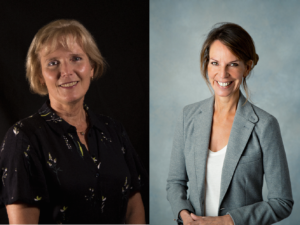Trial REadiness in Ataxia Telangiectasia (TREAT-AT)
Research Project information
Principal researchers: Dr Rita Horvath and Dr Anke Hensiek
Institute: University of Cambridge, UK
Cost: £250,000 over 36 months in partnership with the A-T Society (UK), AEFAT (Spain) and BrAshA-T (Australia)
Start Date: 25th of October 2023
What are the researchers proposing to do?
Ataxia Telangiectasia (A-T) is a devastating and untreatable inherited disease with neurological symptoms. There are several challenges to assess the effectiveness of drugs in clinical trials aiming to treat the neurological manifestations:
- Individuals with A-T have unique features which can differ between people and may not progress predictably
- There is currently no established test in A-T, such as a blood test or brain scan to track changes in the neurological symptoms
- Human samples are needed to better evaluate the effectiveness of an intervention, as the animal models do not present neurodegeneration
The team at Cambridge have identified a particular mutation (the ‘UK mutation’) that causes a type of A-T and may be treatable with a new genetic treatment called antisense oligonucleotide (ASO) therapy. Their study will use 10 years of existing data tracking people with A-T and gather a further 2 years of new data in people with the UK mutation.
Why?
This robust and extensive study into the progression of neurological symptoms in A-T aims to establish optimal biomarkers in preparation for clinical trials in A-T. Biomarkers are biological molecules found in blood, other body fluids, or tissues that are indicators of the disease condition. They can be measured easily and can be used to monitor the disease. Specifically, the team are preparing for a future trial of an antisense oligonucleotide therapy in patients with the UK mutation
How will the research be done?
The team will study the clinical symptoms, blood biomarkers and brain imaging findings in a subgroup of A-T caused by the so called “UK mutation”. Team members are experts in all aspects of this study including translational research, state-of-the-art imaging and eye assessment. They will involve A-T patients and their family members in the research and also in the design of a future clinical trial. They will also actively engage with A-T charities to enable a better distribution of information to patients.
How could it make a difference to the lives of those affected by A-T?
This study will help us to understand the natural history of A-T and aims to allow rapid progression to trial-readiness, vital to the delivery of clinical trials, such as a novel ASO therapy to a cohort of A-T patients. They will ensure the most thorough methods to fairly assess therapy effectiveness, which will benefit any future clinical trial in A-T. They will involve A-T patients and their family members in the design of a future clinical trial.
Please read our FAQ’s for further information relating to this project and the UK mutation and note that the research team are only investigating the outcome measures for a potential trial (no trial date has been confirmed).




